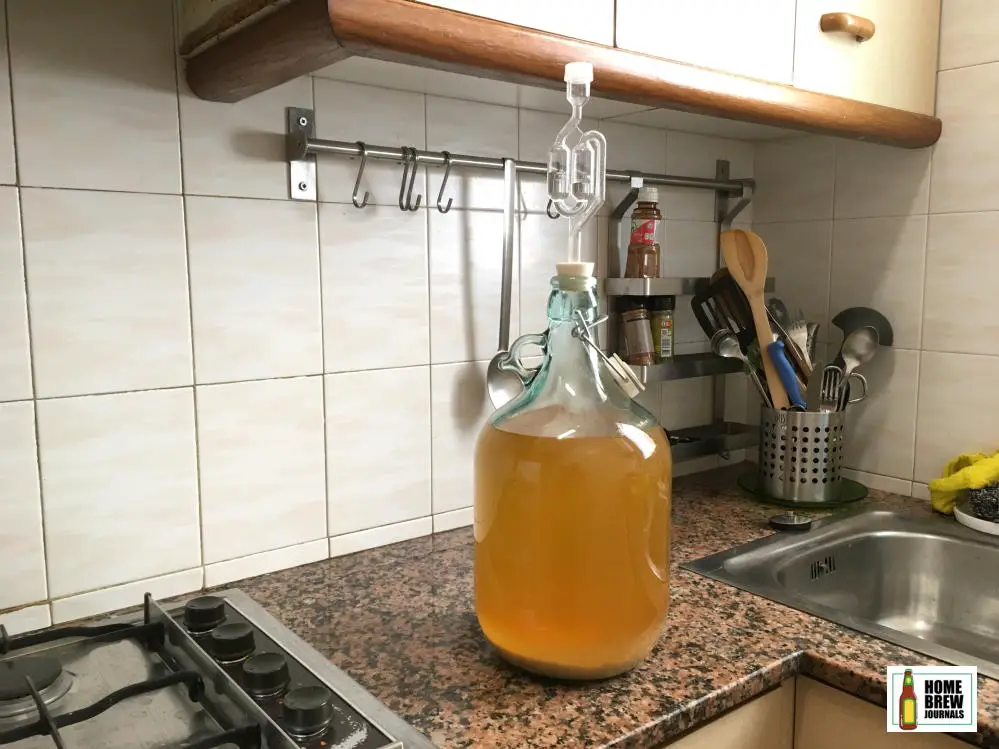Homebrewing is booming in the United Kingdom, and many of us have been inspired to try and craft our own beer without giving much thought to rules and regulations.
The UK is relatively laid back on its laws surrounding home brewing. There’s no limit to the amount of beer or wine that you can make, provided that it’s only for your personal consumption. Furthermore, it’s legal to distil spirits at home, although this does require a license.
In this article, we take a look at UK home brewing laws and find out a little more about the history of homebrew in this country.

A brief history of homebrewing laws in the UK
People have been brewing beer at home ever since it was invented approximately 7,000 years ago.
By the 1800s many UK households brewed their own wine and beer. Things changed in 1880 when, in a desperate bid to raise funds after abolishing the malt tax, the then Prime Minister, William Gladstone increased income tax and put a new tax on beer.
This didn’t make much of a difference to pubs and other commercial establishments. However, for the many households that enjoyed a homebrew or two; a new license was now automatically required.
This side-effect of the new law meant that not only did homes have to be licensed to make their own alcoholic beverages, but they would also need to be closely regulated. As for the license, well that came with a registration fee, and as you can imagine, people weren’t overly pleased.
Nonetheless, there were still many ‘rogue’ homebrewers who continued brewing and prior to World War 1, making home beer was commonplace. From Land’s End to John O’Groats, British housewives would share recipes and even their yeast with their neighbours. This didn’t last long, though, as a lot of people were taken to court and fined.
By the 1960s, it’s believed that as few as 250 UK residents were legally permitted to brew beer and wine at home. In practice, the laws were tough to enforce and so in 1963, then Chancellor of the Exchequer, Reginald Maudling scrapped the Victorian ruling and allowed Brits to regain their right to brew.
From this point onwards, there were a wealth of homebrewing kits and equipment sold on high streets across the country as the UK underwent a kind of home brewing renaissance. During the 1970s homebrew had become so mainstream that it was even featured in popular TV sitcoms and you could purchase beer and winemaking kits from your local chemist shop.
There was cause for concern in the 1980s when there was a call for homebrewing to be regulated once again owing to its effect on the commercial market. Many publicans and off-license owners believed that homebrewers should be taxed on their wares. In the end, it never came to fruition because the UK homebrew market collapsed with an almighty crash in 1986.
In recent years home brewing is gaining popularity once again, thanks largely to the resurgence of craft beer, brewpubs and microbreweries. The availability of good-quality all-grain homebrew kits and the wealth of information available online means that modern-day homebrewers can faithfully replicate their favourite brews at home.
Although popularity may not yet have reached the levels of the 1970s, homebrew kits are once again available in most larger supermarkets.
How much beer or wine can you legally brew at home in the UK?
One of the great things about living in the UK, at least for anyone who wants to brew their own wine or beer is that unlike some countries, there is no limit on the annual yield.
In some parts of the world, the USA, for example, , residents are only allowed to make a certain amount per year, per adult in the household.
UK laws are much laxer and dictate that, provided you are going to consume the alcohol yourself and not sell it, you are free to make as much as you like.
Can I make my own whiskey at home?
Unfortunately, if you prefer the hard stuff, you would need to obtain a license from the UK revenue and customs office. This applies whether you intend to sell the alcohol or consume it yourself.
You’ll also need to obtain a separate license for every premises that you are going to be distilling in. For example, if you will use your main home as well as a holiday home, you would need to apply for two licenses.
You can do this on the UK government website and will also need to fill out a quarterly tax return. In addition to this, your application may be declined if the largest still is below 18 hectolitres, so it’s best to cross-check your application with the information listed on the gov.uk website.
Laws in the UK also prevent you from using equipment that is intended for purifying essential oils or water in the production of distilled spirits such as whiskey.

Is it legal to sell homebrew in the UK?
In the United Kingdom, you are not permitted to sell your homebrewed beer and wine.
Now let’s make it really clear what ‘selling’ means. You might assume that selling your homebrew means you are giving it to someone in exchange for money. But this isn’t strictly true.
UK laws state that you mustn’t even give away any homebrew if it will be drunk on premises other than your own. If you pop a few homemade bottles of wine into your friend’s bag for them to try at home, you are in theory breaking the law. That being said, it’s highly unlikely that you’ll get prosecuted for such a minor offence; in fact, it would likely go unnoticed.
However, if you do plan to do more than simply offer a drink to a friend as a Christmas gift, then you will need to get a license from the HMRC. This is made up of two components; a personal license as well as a license for the premises from which the drinks will be sold.
What are the rules for setting up a microbrewery in the UK?
A microbrewery is an independently owned small brewery that often creates craft beers. More and more people are opening up to the idea of setting up this type of brewery in their home or a small premises, but it’s not something that you can just wake up and start doing when you’re bored on a Monday morning.
There are certain laws that must be abided by, for example, if the alcohol you are making is more than 1.2%ABV then you will have to pay tax on it, and this requires (yet another) form. The good news is that if you produce less than 60,000 hectolitres per year, the rate you pay will be reduced. You might not be sure of how much you will produce annually, but it is important to make a realistic estimate as the government will want to know this before issuing you with your permit.
Don’t forget that if you plan to sell the beer for consumption on-site, you’ll also need a license for this. Many microbrewery managers have talked about the incredible amount of red tape that one has to go through in order to get started. But if this is your passion, it’s surely worth all the hassle.
Do you have to be over 18 to buy homebrew equipment?
In the UK, there is no law that prevents minors from purchasing home brewing equipment or kits. Having said that, most large UK retailers will not knowingly sell these products to those under the age of 18.
There have been numerous threads on UK homebrewing forums reporting that major chains such as Asda, Tesco, and Sainsbury’s all refuse the sale of beer kits to children even if they were to be used as Christmas gifts, for example.
Conclusion
The UK is quite laid back on its laws surrounding homebrewing, especially when you compare it to some of the stricter countries in the world.
There’s no limit to the amount of beer or wine that you can make in the comfort of your own home, provided that it’s only for personal consumption. Furthermore, it’s legal to distil spirits at home, but this does require a special license.
Up until 1880, homebrewing was commonplace, but then a new law came in that required homeowners to apply and pay for a licence if they wanted to continue homebrewing. Of course, this was a bitter pill to swallow, and only a few hundred people complied. The unpopular and archaic law was finally overturned in 1963 by the Conservative government of Reginald Maudling.
In modern-day Britain, homebrewing is legal and booming once again. Unlike the 1970’s era homebrewers who brewed beer from cheap kits to save money, today’s brewers aspire to quality, and many go on to open microbreweries, although this requires a government permit.
If all you want to do is make a few bottles of red or a keg or two of ale, then go ahead; there’s no law stopping you.
